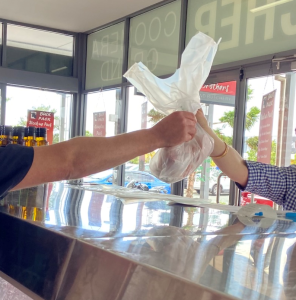The Federal Government is currently undertaking a nationwide survey of antimicrobial resistance in Australia’s food supply. The survey contributes to Australia’s National Strategy to protect Australians against the threat of antimicrobial resistance.
What is antimicrobial resistance?

Antimicrobial resistance (AMR) occurs when bacteria, viruses, fungi, and parasites change over time resulting in increased resistance to readily available antimicrobials and reduced choices for effective management of disease in animals, humans and production environments.
We rely on antibiotics to treat common infections in both humans and animals. Over time, this can lead to AMR, which can then have implications for food safety and food security, impacting on the economic wellbeing of millions of people working within the primary production and processing sector.
AMR is a serious global issue that needs our urgent action. Australia’s response recognises that AMR affects human and animal health, agriculture, and the food sector. Understanding the current level of AMR in the food supply chain is important to measure the effectiveness of antibiotics and to help develop useful strategies to manage and reduce the impact on communities.
Australia’s Antimicrobial Resistance Strategy
Australia is working toward ensuring antimicrobials remain effective for decades to come. Our National Antimicrobial Resistance Strategy – 2020 and beyond sets a 20-year vision to protect the health of humans and animals by controlling and combating AMR while continuing to have effective antimicrobials available. As part of this, Food Standards Australia New Zealand (FSANZ), together with state and territory regulators, have begun a two-year project investigating the prevalence of antimicrobial resistant bacteria in the food supply chain.
This is the first national surveillance study of retail food since 2007. While Australia has one of the safest food supply chains in the world, this surveillance will help to ensure the future safety of this while providing important data that can be used as part of the Australian One Health approach to inform policies, undertake risk analysis and make recommendations regarding AMR into the future.

Safe Food is collecting meat samples from QLD butchers
The first step of the project is now complete. This involved collecting retail samples of beef, pork, and poultry products. Safe Food Production Queensland (Safe Food) worked collaboratively with Queensland Health (QH) to collect these samples in Queensland. Samples were collected from butchers across Queensland while QH looked after the collection of samples from large retailers.
These samples will be analysed for Salmonella, Campylobacter, Escherichia coli, and Enterococcus. If positive, bacteria will be tested for antimicrobial susceptibility and Whole Genome Sequencing will be performed to detect genetic antimicrobial resistance determinants. A final report of the national findings will be released publicly.
Safe Food is proud to support this National Surveillance Project by FSANZ and contribute toward the national approach for protecting Australian health and our environment by minimising the development and spread of AMR.
For more information on AMR, the Australian Government’s National Strategy, and what you can do to help reduce AMR, please visit https://www.amr.gov.au.
